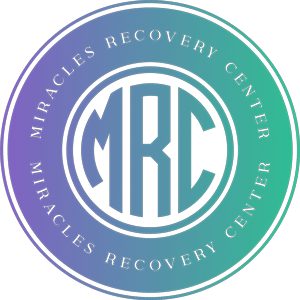Embarking on the journey of rehab counseling can feel like navigating through a maze—complex, daunting, yet filled with hope at every turn. This guide illuminates the diverse stages of rehab counseling, shedding light on a path designed not just to heal, but to transform lives.
Understanding the Basics of Rehab Counseling
Rehab counseling begins with a foundation of empathy and understanding, offering a glimmer of light in what might feel like overwhelming darkness. It’s a specialized field that merges the knowledge of psychology, disability, and social work, aimed at empowering those who are navigating through difficulty. By tailoring strategies to the unique needs of each individual, rehab counselors open the door to personal transformation, proving that with the right support, every obstacle can be a stepping stone to growth.
This initial phase is all about building a base of trust and understanding between the counselor and the individual. It involves detailed discussions on personal histories, challenges, and aspirations. The goal is to create a safe and open environment where individuals feel valued and understood, paving the way for effective counseling.
The Initial Stage: Building Trust and Setting Goals
Setting the stage for a successful journey in rehab counseling, the initial phase revolves around establishing a mutually trusting relationship. It’s akin to planting a seed of trust in fertile soil, nurturing it with honesty, respect, and empathy. Counselors and clients work together to outline realistic, achievable goals, forming the cornerstone of the rehab counseling process. It’s a time of hope and planning, where dreams of a brighter future start to take root.
Assessment and Evaluation: Identifying Needs and Challenges
This crucial stage involves a deep dive into the individual’s challenges, strengths, and potential obstacles. Through a combination of interviews, assessments, and observations, rehab counselors gather the insights needed to develop a comprehensive understanding of each client’s situation. It’s a process that combines science with empathy, ensuring that the path forward is tailored to the unique journey of every individual.
Armed with this detailed understanding, counselors are better equipped to identify the most effective strategies and interventions. This stage sets the stage for a targeted approach to rehab counseling, one that acknowledges the individuality of each person’s experience and the complexity of their needs.
Developing a Customized Treatment Plan
At this juncture, the insights gleaned from assessments come together to form a personalized treatment plan. It’s a roadmap to recovery, crafted with the input of both the counselor and the client, focusing on specific goals and the steps necessary to achieve them. This plan is not set in stone; rather, it’s a living document, adaptable to the evolving journey of the individual. It includes a variety of strategies, from cognitive-behavioral therapy to life skills coaching, all aimed at fostering resilience and self-reliance.
Active Therapy: Approaches and Techniques in Rehab Counseling
Within the active therapy stage, a variety of techniques and approaches come into play, tailored to the client’s needs and the goals laid out in their treatment plan. From one-on-one sessions focusing on cognitive restructuring to group therapy that fosters community and mutual support, this phase is all about engaging in the work of healing. Techniques like role-playing and exposure therapy might also be employed, aiming to equip individuals with the tools they need to overcome challenges and make significant strides towards their recovery goals.
Moreover, active therapy is an empowering stage, where clients learn to recognize their strengths, develop coping strategies, and rebuild their confidence. Each session is a step forward, with the counselor acting as a guide, supporting their clients as they navigate their way through healing and toward a more hopeful future.
Monitoring Progress and Adapting the Plan
As the journey unfolds, regular checkpoints allow both the counselor and the client to reflect on progress, celebrate victories, and reassess the path ahead. It’s a dynamic phase, where adaptability is key. Changes in the treatment plan are not signs of setbacks but indicators of growth, understanding, and refinement of strategy. This stage underscores the collaborative nature of rehab counseling, with client and counselor working in tandem to fine-tune the approach in response to evolving needs and circumstances.
Transitioning from Rehab: Planning for Long-Term Success
As the active phase of rehab counseling draws to a close, attention shifts towards ensuring a smooth transition. This stage is about looking forward, planning for both the immediate and distant future. It’s where the groundwork laid during counseling starts to bear fruit, as clients prepare to navigate life with a renewed sense of strength and clarity. Counselors help in identifying support networks, ongoing resources, and strategies to maintain the progress made, ensuring that the principles of rehab counseling extend far beyond the counseling sessions themselves.
Transforming Challenges into Milestones
As we’ve journeyed through the various stages of rehab counseling, it’s clear that each step carries its unique challenges and triumphs. Rehab counseling is not just about overcoming, but learning, growing, and emerging stronger on the other side. It’s a testament to the resilience of the human spirit, underscored by compassionate guidance and unwavering support. Truly, rehab counseling is where journeys take a pivotal turn towards lasting healing and renewed purpose.





